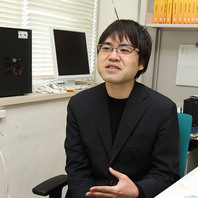![]()
![]()
Research Support Office Research Advancement Division. Tokyo University of Agriculture and Technology
| TEL | +81-42-367-5944 |
|---|---|
| FAX | +81-42-367-5946 |
This program is supported by MEXT’s scientific technology human resource development fee grant, "Program to Disseminate Tenure Tracking System".
Home > Tenured Faculties > Kusadokoro Motoi

Kusadokoro Motoi

| Research experience | ・2011/04-2011/11: Researcher, Institute of Economic Research, Hitotsubashi University |
|---|---|
| Educational background | ・2002 Graduated, Faculty of Agriculture, Kyoto University |
| Awards | |
| Selected papers and publications | (At Dec. 2011) |
Study on Turkish rural economy and agricultural household:
This study aims to find the direction of technological evolution of agriculture and the efficient way of diffusion to remedy the economic disparity between urban and rural area in Turkey. Using large micro panel data, this study investigates, first, the factors which affect the economic disparity and poverties such as ethnic issues, rural institution, and environmental deterioration, second, the characteristics of agricultural production technologies and the choice of them by farmers.
Study on silk-raising farmers in pre-war Japan and modern China:
This study aims to apply Japanese experience of economic development on the present development issues. Especially, this study focuses on the sericultural industry in pre-war Japan. Silk-raising was the main source of cash income for the farm household. Various technological and institutional developments were devised to increase the productivity and efficiency of sericultural industry. However, the position of silk-raising in the farm economy was not so high and sericultural industry declined slowly after the world depression. Using various set of micro data, this study investigates how and why the sericultural industry in pre-war Japan contributed to and/or limited the evolution of farm household economy. Afterwards, comparative analyses of silk-raisng farmers in pre-war Japan and modern China are conducted.
Tenure track system of this university is very attractive for young researchers, because finding permanent jobs is getting harder for them. In addition, this system supports the creation of research environment and affords good opportunity to young researchers focus on their researches. The success of this project will contribute to establishment of the Japanese tenure track system.
My research environment is being developed because of the support from the university and the faculty members. I will progress intensively my research to contribute the success of this project as well as education of undergraduate and graduate students. My ideal researcher is one who can share the excitement of learning with students.